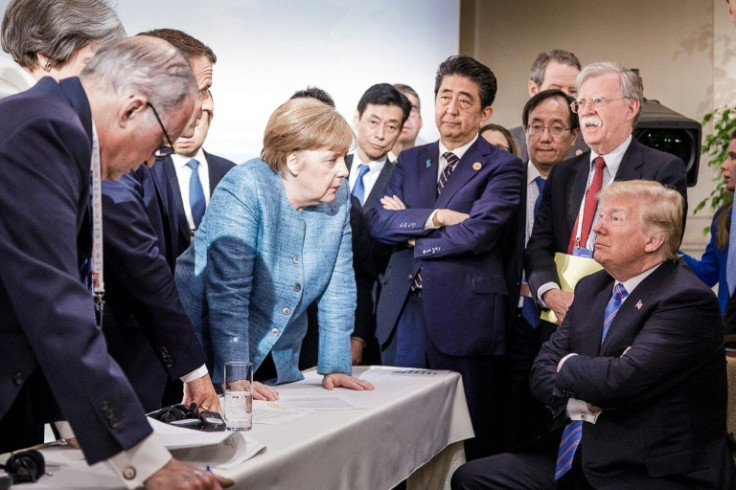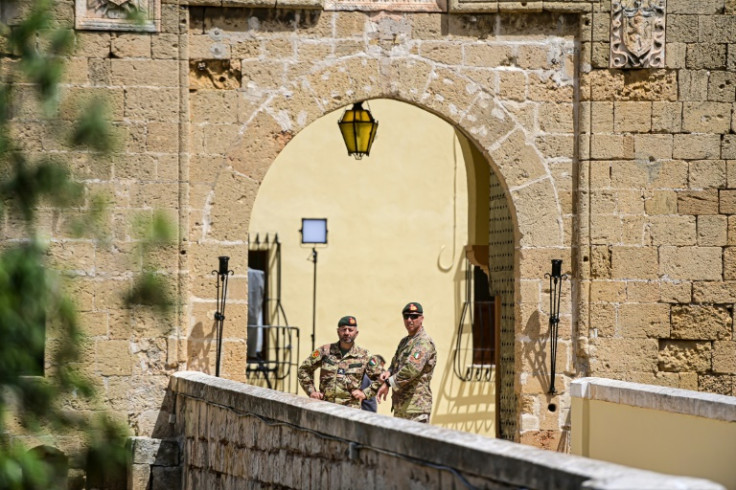
When US President Joe Biden meets world leaders at a lavish Italian resort this week he will be shadowed by an invisible and, for now, uninvited guest: Donald Trump.
The G7 summit in Puglia comes just five months before a nail-biting US presidential election that is testing not only America's democracy but also causing huge uncertainty for its allies.
Hanging over the leaders is the knowledge that it could be the 81-year-old Biden's last G7 summit, and that the right-wing Trump, with his so-called America First policies and demonstrated scorn for international organisations, could be on his way back.
Biden -- arriving at the summit late Wednesday just after his son Hunter's conviction on gun charges -- has acknowledged the political pressure he faces.
"There's not a major international meeting I attend that... a world leader doesn't pull me aside as I'm leaving and say, 'He can't win. You can't let him win,'" he recently told Time magazine.
Many of the Group of Seven rich nations breathed a sigh of relief when the US Democrat, an old-school believer in the post-World War II order, took office three years ago.
The group's summits with Trump had been chaotic affairs.
Take Canada in 2018, when he lashed out at his host Justin Trudeau as "dishonest and weak" and retracted his endorsement of the joint statement.
A famously awkward photo showed then-German Chancellor Angela Merkel and other leaders standing grimly over Trump as he sat with his arms folded.
Or 2020, when Trump planned to hold the G7 at his own Trump National Doral Miami golf resort in Florida, and to invite Russia despite its suspension from the group for its 2014 annexation of Crimea.
Eventually he backed down on both -- and the summit was then cancelled because of the Covid pandemic.
Biden recently told the story of his first G7 as president, in Britain in 2021.
"I said: 'Well, America's back.' (French President Emmanuel) Macron looked at me and he said, 'For how long? For how long?'" Biden said in his Time interview.
With polls showing Biden and Trump neck and neck, the question is more urgent than ever.
Will the G7 get another four years of Biden, who promises to support Ukraine against Russia and maintain international alliances and institutions in the face of an assertive Moscow and Beijing?
Or will leaders sit around the table in Canada next year with Trump, who says he would tell Russia to "do whatever the hell they want" to NATO members that allegedly do not pay their dues, and frequently praises foreign autocrats?
Asked whether Biden would address allies' concerns, White House Press Secretary Karinemessage Jean-Pierre said Biden would repeat the message he conveyed in France at ceremonies marking the 80th anniversary of the D-Day landings last week -- that democracy is under threat.
"You've heard the president talk about the importance of our alliances and our partnership, and how it is important that we fight for democracy and freedom," Jean-Pierre told reporters travelling with the president.
"So you'll see the president going into the G7, another important opportunity to engage with our allies and partners."
The G7 has in fact been showing signs that it is trying to "Trump-proof" itself.
The Biden administration, for example, is pushing the group to agree on a US plan to front-load around $50 billion in aid for Ukraine by using profits from seized Russian assets.
The plan would avoid smaller payments over years that could then be cancelled by a Trump White House.
A source familiar with the G7 talks said delegations were looking to "truncate the downside risk from electoral politics".
Biden's gruelling travel schedule of two trans-Atlantic trips in two weeks is also putting America's oldest-ever president under scrutiny at the G7.
But analysts said it would give Biden another chance to show American leadership -- and his own.
"He's demonstrating to our European allies that the United States is stalwart," Peter Loge, a media and public affairs professor at George Washington University, told AFP.
"That absolutely will be contrasted with Donald Trump, who is a convicted felon, who by definition cannot fully be trusted," he said.









